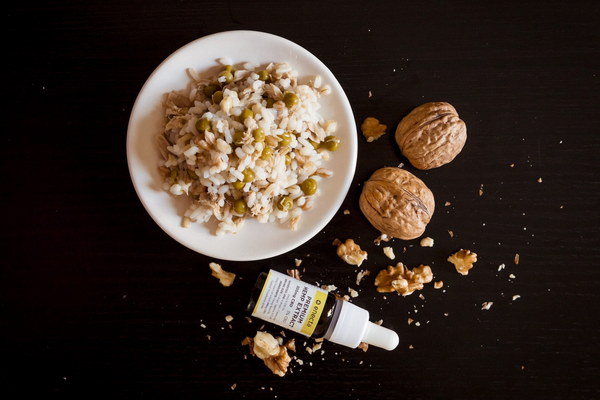Harmonizing Liver Function A Traditional Chinese Medicine Perspective on Meridian-Based Liver Care
In the realm of Traditional Chinese Medicine (TCM), the liver plays a pivotal role in maintaining the body's overall health and well-being. As the commanding organ, the liver governs emotions, blood, and the smooth flow of qi (vital energy). The meridian system, a network of channels that runs throughout the body, is instrumental in supporting liver function. This article delves into the essence of TCM's approach to meridian-based liver care, offering insights and practical tips for nurturing a healthy liver.
The Liver Meridian: A Pathway to Wellness
The liver meridian, known as the Liver Channel or the Gallbladder Channel, is one of the twelve primary meridians in TCM. It begins at the big toe, travels up the inner leg, around the knee, and continues along the thigh and hip, eventually reaching the chest and neck. Understanding the liver meridian's pathways can help identify areas where energy may be blocked, leading to various health issues.
Harmonizing the Liver: The Meridian Connection
TCM views the liver as the organ most susceptible to stress, emotions, and environmental factors. When the liver meridian is blocked or imbalanced, it can manifest in physical symptoms such as irritability, poor digestion, and menstrual irregularities. To maintain a healthy liver, it's essential to keep the meridian pathways open and flowing.

Here are some TCM practices that can help nurture the liver and its meridian system:
1. Acupuncture: Acupuncture, a key component of TCM, involves inserting fine needles into specific points along the liver meridian to stimulate energy flow. This ancient practice can help alleviate stress, improve digestion, and regulate emotions.
2. Tui Na Massage: Tui Na, a form of therapeutic massage, focuses on the liver meridian and other energy pathways. Massaging these areas can help release tension, improve circulation, and restore balance to the liver.
3. Diet: A liver-boosting diet should include foods that nourish the liver and help maintain its meridian pathways. These include green leafy vegetables, nuts, seeds, and fruits rich in antioxidants. Limiting alcohol, caffeine, and processed foods can also support liver health.
4. Herbs: TCM herbs such as dandelion, milk thistle, and chrysanthemum can help support liver function. These herbs can be taken in tea form, as a supplement, or in combination with other herbs, depending on individual needs.
5. Exercise: Regular physical activity can help maintain a healthy liver by improving circulation and reducing stress. Gentle exercises such as tai chi and qigong are particularly beneficial, as they focus on harmonizing the body's energy flow.
6. Stress Management: Chronic stress can lead to liver imbalance. Practices such as meditation, deep breathing exercises, and yoga can help manage stress levels and support liver health.
7. Sleep: Adequate sleep is crucial for liver rejuvenation. The liver is most active during the hours between 1 a.m. and 3 a.m. Ensuring a good night's sleep during this time can help the liver repair and regenerate itself.
Conclusion
Incorporating TCM practices into your daily routine can help maintain a healthy liver and its meridian system. By addressing the root causes of liver imbalance and promoting overall well-being, you can enjoy the benefits of a harmonized liver for years to come. Remember to consult with a qualified TCM practitioner to tailor these practices to your specific needs.









